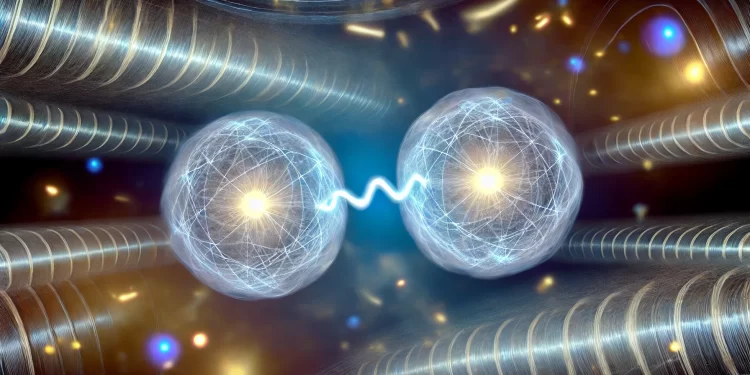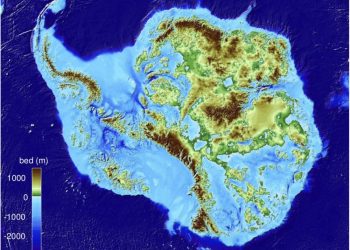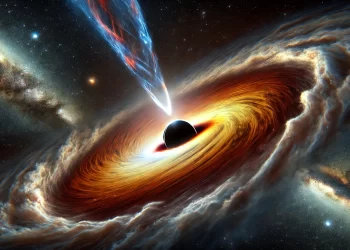In a groundbreaking experiment, top quarks, the universe’s heaviest known particles, have exhibited quantum entanglement at energy levels trillions of times higher than in previous experiments, challenging the boundaries of physics.
Exciting times! At the heart of CERN’s Large Hadron Collider (LHC), an unprecedented quantum entanglement event has been recorded, setting a new benchmark in particle physics. Researchers have confirmed that top quarks—particles with a mass equivalent to that of a caffeine molecule—are capable of becoming quantum entangled at energy levels trillions of times higher than what has been achieved in previous experiments. This revolutionary discovery offers new insights into both the nature of quantum mechanics and the potential for discovering physics beyond the current Standard Model.
A Quantum Leap in Energy
The Large Hadron Collider, the world’s most powerful particle accelerator, has once again pushed the boundaries of scientific understanding. Last year, CERN’s ATLAS experiment initially detected quantum entanglement between top quarks, but the findings have now been verified by the Compact Muon Solenoid (CMS) experiment. Both experiments independently reported spin entanglement with a statistical significance greater than five standard deviations, a threshold in physics that rules out coincidence.
This entanglement was observed at energy levels 12 orders of magnitude higher than those used in traditional quantum entanglement experiments. This is a staggering leap that presents opportunities for researchers to delve deeper into the mysteries of quantum phenomena.
“The confirmation of quantum entanglement in a system as massive and energetic as top quarks is remarkable,” stated Andreas Hoecker, spokesperson for the ATLAS experiment. “It paves the way for new explorations into the nature of quantum mechanics at unprecedented energy levels, expanding the potential for discovery in particle physics.”
What is Quantum Entanglement?
Quantum entanglement occurs when two or more particles become linked, such that the state of one immediately influences the state of the other, regardless of the distance between them. This entangled state is unaffected by distance—whether the particles are a few meters apart or on opposite ends of the universe, a change in one particle is reflected in the other instantaneously. However, it’s crucial to note that no information is transmitted between the particles, preserving the foundational limits imposed by the speed of light.
Entanglement has long fascinated scientists due to its seemingly paradoxical nature, challenging our understanding of causality and the fundamental laws of physics. The fragility of the quantum state makes it difficult to observe, and until now, experiments had been limited to much lower energy levels.
The Unique Role of Top Quarks
Top quarks are one of the six types of quarks that make up matter and are distinguished by their extreme mass—about 183 times heavier than protons or neutrons, the fundamental building blocks of atoms. They are the heaviest known elementary particle, with a mass of approximately 173 GeV/c². However, their instability makes them challenging to study. Top quarks decay in about 5×10⁻²⁵ seconds, which is incredibly brief, allowing researchers to observe them only through the particles they decay into.
Despite their fleeting existence, top quarks provide essential insights into the Standard Model of particle physics. In this case, the CMS experiment studied top quark pairs generated at very high momenta, confirming that quantum entanglement persisted even at these extreme energy levels. This finding supports the robustness of quantum mechanics, even under the extreme conditions produced by high-energy particle collisions.
A New Era for Particle Physics
Patricia McBride, spokesperson for the CMS experiment, emphasized the significance of this breakthrough. “By observing quantum entanglement at such extreme energy levels, we are able to push the boundaries of the Standard Model and explore new physics. These results may open doors to phenomena we have yet to understand or even observe.”
This discovery at CERN marks an important milestone for physicists seeking to test the limits of quantum mechanics. The ability to observe entanglement in such high-energy systems presents exciting opportunities to study the foundational rules that govern our universe. More importantly, it sets the stage for future experiments that could reveal new physics beyond the current understanding, potentially leading to groundbreaking discoveries about the fabric of reality.
Looking Ahead: What Does This Mean for Science?
The implications of this research are profound. Quantum entanglement at extreme energy levels could shed light on key questions in particle physics, particularly about the fundamental forces and interactions that shaped the universe moments after the Big Bang. While current quantum technologies focus on lower-energy systems, a deeper understanding of entanglement at these high-energy levels may pave the way for future innovations in quantum computing and communication, although this remains a speculative but exciting frontier.
As CERN continues its work at the cutting edge of science, physicists are eager to gather more data and refine their models. These experiments not only expand our understanding of quantum mechanics but may also hint at entirely new realms of physics, waiting to be explored.











